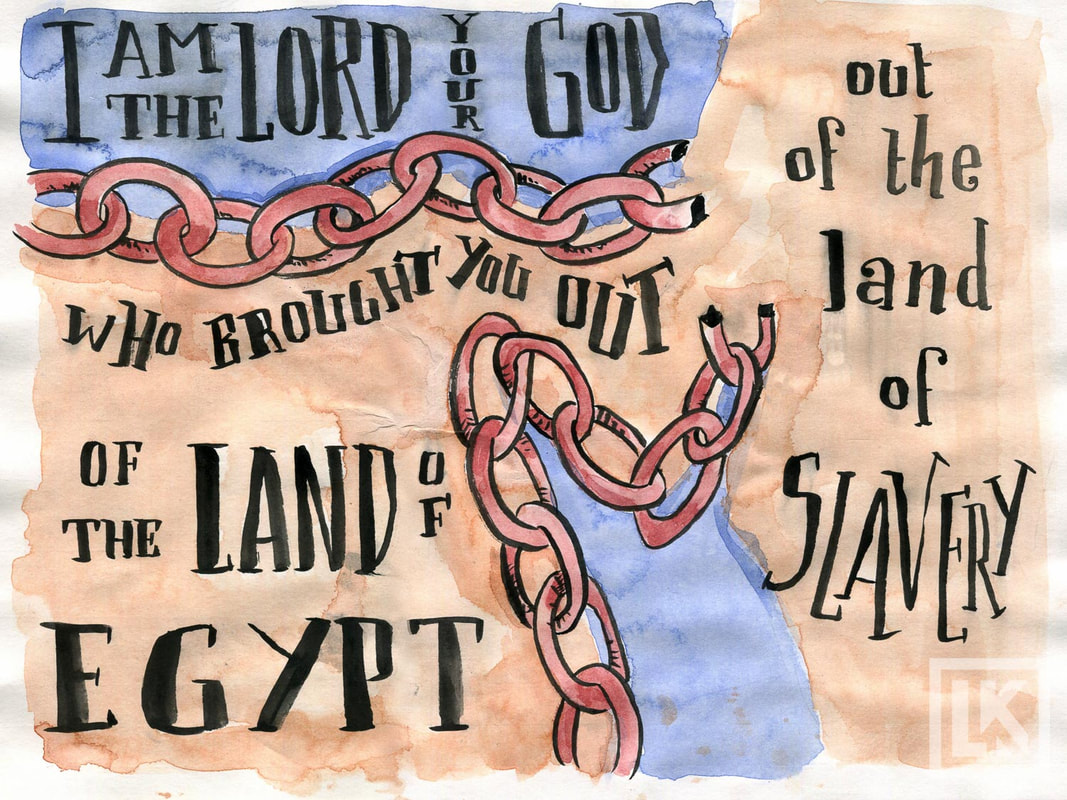About a week before His arrest and crucifixion,
Jesus went into the temple and cleared it out of “all who were buying and selling there. He overturned the tables of the money changers and the benches of those selling doves” (Matthew 21:12). Jesus then spoke to the startled crowds: “It is written, My house shall be called the house of prayer; but ye have made it a den of thieves” (verse 22, KJV). The same incident is recorded in Mark 11 and Luke 19. John 2 records similar actions of Jesus at the beginning of His ministry.
In speaking of a “house of prayer” and a “den of thieves” (the NIV has “den of robbers”), Jesus cited two passages from the Tanakh. In Isaiah 56:7 God says, “These [faithful foreigners] I will bring to my holy mountain and give them joy in my house of prayer. Their burnt offerings and sacrifices will be accepted on my altar; for my house will be called a house of prayer for all nations.” Twice in this verse, God’s temple is called “a house of prayer.” God’s design was for His house in Jerusalem to be a gathering place for worshipers from all nations, a place where prayers would rise like incense from the hearts of the faithful to the presence of the living God.
The phrase den of thieves comes from Jeremiah 7:11, where God says, “Has this house, which bears my Name, become a den of robbers to you? But I have been watching! declares the LORD.” The prophet Jeremiah was rebuking the temple leaders for their abuses. Even as they continued going through the motions of their religion, they were oppressing the needy and violently taking what was not theirs. God saw through their pretense, however, and promised to deal with the thieves in His sanctified house.
Jesus takes these two verses from the Old Testament and applies them to His day. One verse was full of purity and promise: God’s temple would be an inviting house of prayer. The other verse was full of conviction and warning: people had perverted God’s right purposes for their own gain. In the courts of the temple, people were being taken financial advantage of, being cheated through exorbitant exchange rates and being compelled to buy “temple-approved” animals for sacrifice, on the pretext that their own animals were unworthy. Jesus denounced such greedy goings-on and physically put a stop to the corruption. In His righteous indignation, He quoted Isaiah and Jeremiah to show that He had biblical warrant for His actions. What should have been a sanctuary for the righteous had become a refuge for the wicked, and the Son of God was not going to put up with it. God’s design for the temple was that it be a house of prayer, a place to meet with God and worship Him. But when Jesus stepped into its courts, He found not prayer but avarice, extortion, and oppression.
It’s always good to remember the Lord’s purpose for what He makes. Whether it’s the temple, the church, marriage, the family, or life itself, we should follow God’s design and seek to honor Him. Any twisting or perverting of God’s design for selfish purposes will draw the Lord’s righteous anger.
We can know for sure that our anger or indignation is righteous when it is directed toward what angers God Himself. Righteous anger and indignation are justly expressed when we are confronted with sin. Good examples would be anger toward child abuse, pornography, racism, homosexual activity, abortion, and the like.
The apostle Paul gives clear warning to those who anger God: “Now the works of the flesh are evident: sexual immorality, impurity, sensuality, idolatry, sorcery, enmity, strife, jealousy, fits of anger, rivalries, dissensions, divisions, envy, drunkenness, orgies, and things like these. I warn you, as I warned you before, that those who do such things will not inherit the kingdom of God” (Galatians 5:19–21). Jesus expressed righteous anger over the sins of the people (Mark 3:1–5; Matthew 21:12–13; Luke 19:41–44). But His anger was directed at sinful behaviors and unmistakable injustice.
However, we are also taught to be careful in our anger, that we do not sin. “Be angry and do not sin; do not let the sun go down on your anger, and give no opportunity to the devil” (Ephesians 4:26–27). We should check our attitude as well as our motive before becoming angry with others. Paul gives us some sound advice on the appropriate approach: “Do not take revenge, my friends, but leave room for God’s wrath, for it is written: ‘It is mine to avenge; I will repay,’ says the Lord. On the contrary: ‘If your enemy is hungry, feed him; if he is thirsty, give him something to drink. In doing this, you will heap burning coals on his head.’ Do not be overcome by evil, but overcome evil with good” (Romans 12:19–21).
James also gives us good instruction when it comes to righteous indignation: “Know this, my beloved brothers: let every person be quick to hear, slow to speak, slow to anger; for the anger of man does not produce the righteousness of God” (James 1:19–20). The apostle Peter echoes this advice especially for those times when we face those antagonistic toward God and the things of God: “But even if you should suffer for righteousness’ sake, you will be blessed.
Two passages in the Bible say that “in the last days, scoffers will come.” Second Peter 3:3 and Jude 1:18 both explain what that means. A “scoffer” in this context is one who mocks Christ, ridicules the things of God, and opposes the gospel. Both Peter and Jude were writing warnings against false teachers who were intent on leading others astray. The word scoffer refers to one who denies the truths of Scripture and entices others to go along with his error.
Scoffers have been present since the Garden of Eden. Satan’s first temptation of man was in the form of scoffing at God’s command: “Did God really say—?” (Genesis 3:1). Scoffers dominated Noah’s day (Genesis 6:5–8; Hebrews 11:7), leaving God with little choice but to destroy them all and start over with Noah, the only righteous man on earth. Scoffers refuse to believe the word of the Lord and set themselves up as their own gods (2 Chronicles 36:16). The psalmist warns against the digression that leads from casual association with wicked people to sitting “in the seat of scoffers” (Psalm 1:1, ESV), embracing their worldview—and sharing their fate.
Although scoffers have always been a part of this fallen world, Scripture seems to indicate that, as the Day of the Lord draws nearer, the scoffing will increase. Peter describes these scoffers as “following their own evil desires” (2 Peter 3:3) and questioning the second coming of the Lord Jesus (verse 4). Thousands of years have passed since Jesus ascended into heaven, promising to return for His faithful ones (John 14:1–4; Revelation 22:12). Scoffers point out the lapse of time and mock those who still wait and yearn for His appearing (2 Timothy 4:8; 2 Thessalonians 1:7).
Jude describes the scoffers of the last days as people who follow ungodly desires and create division in the church (Jude 1:18). They may even present themselves as church leaders, but they “do not have the Spirit” (verse 19). Paul goes into more detail about the condition of the world before Jesus returns: “But mark this: There will be terrible times in the last days. People will be lovers of themselves, lovers of money, boastful, proud, abusive, disobedient to their parents, ungrateful, unholy, without love, unforgiving, slanderous, without self-control, brutal, not lovers of the good, treacherous, rash, conceited, lovers of pleasure rather than lovers of God—having a form of godliness but denying its power. Have nothing to do with such people” (2 Timothy 3:1–5). Scoffers will fit right in with such a crowd.
We already see an increase of scoffers in our world today, and several factors may be contributing to that rise. Constant access to media, the internet, and other forms of technology provide an open platform for anyone with an opinion, and scoffing at everything once thought honorable is a favorite pastime. Scoffers are emboldened on social media by others who can instantly approve of their mockery. Many people are educated beyond their intelligence, and this new world without moral boundaries is producing scoffers instead of thinkers. Many try to use scientific training to say that, since the reality of the Creator God cannot be proved by man’s understanding, God must not exist. In rejecting Scripture, mankind has lost its moral compass, leaving us with no way to determine right or wrong, good or bad, truth or lie. In this climate, anyone who claims to know the truth is a prime target for scoffers.
Arrogance leads to scoffing, much as it did before the Tower of Babel (Genesis 11:1–4). When people become puffed up with their own importance, they begin to challenge anything that threatens their high opinion of themselves. Once we have removed the idea of God from consideration, then anything goes. Scoffers have tried to redefine marriage, obliterate gender binarism, and create a fantasy world in which reality becomes whatever we feel it is. Not long ago, such a mindset was the definition of insanity. Now we are told it is the ultimate wisdom. Romans 1:21–22 has never been more relevant: “Although they knew God, they neither glorified him as God nor gave thanks to him, but their thinking became futile and their foolish hearts were darkened. Although they claimed to be wise, they became fools.”
The proliferation of scoffers is a sign of the last days. They profess themselves to be wise, but they are really fools (Psalm 14:1). Regardless of the eschatological timeline one prefers, we can all agree that the number of scoffers and deceivers is increasing rapidly, just as Scripture warned us it would (2 John 1:7). It is critically important that every Christian take seriously the commands to study and meditate on God’s Word (2 Timothy 2:15; Joshua 1:8) so that we won’t be led astray by the lofty-sounding ideas presented to us by scoffers (2 Corinthians 10:5).
Scripture employs paradoxes to convey profound messages, one of which is found in 2 Corinthians 12:10, “That is why, for Christ’s sake, I delight in weaknesses, in insults, in hardships, in persecutions, in difficulties. For when I am weak, then I am strong.” Let’s delve into the context of 2 Corinthians 12 to shed light on Paul’s words.
Some false apostles had besieged the church in Corinth when Paul wrote the second letter. These false teachers pretended to be superior to Paul, exuding self-confidence and boasting of their pedigree and accomplishments in order to exploit the Corinthians (2 Corinthians 11:19–20). They wanted to be seen as “super-apostles” (verse 5). In response, Paul sarcastically decides to boast like the false apostles. However, instead of boasting about his accomplishments, he speaks of his sufferings and weaknesses (2 Corinthians 11:23–33). While maintaining this “boast,” he recounts a supernatural experience (2 Corinthians 12:1–6), then transitions to an undisclosed “thorn in my flesh” given to prevent him “from becoming conceited” (verse 7). The exact nature of this thorn is unclear, but it was unpleasant enough for Paul to pray for its removal. He writes, “Three times I pleaded with the Lord to take it away from me” (verse 8). God’s response, however, is a “no,” or, more specifically, “My grace is sufficient for you, for my power is made perfect in weakness” (verse 9). God’s reply brings comfort to Paul, who realizes the purpose of the thorn.
Like the apostle Paul, we need not be ashamed of our weaknesses, whatever they may be. For some, it could be an enduring illness that God hasn’t taken away. Other weaknesses might include shyness, poverty, illiteracy, or speech impediments. We all have limitations and tend to conceal them, striving to appear stronger than we truly are. Paul offers an alternative perspective: showing gratitude for our weaknesses.
The beauty of weakness lies not in the weakness itself, but in how God’s power shines through it. Consequently, Paul could call himself strong even in weakness. Our limitations remind us of our finitude, which, in turn, leads us to God. It is remarkable how His strength radiates through our weaknesses. Consider the example of Joni Eareckson Tada, a quadriplegic whose story has inspired many and through whom God continues to showcase His strength.
Paul’s concept of embracing weakness runs counter to prevailing beliefs about the Christian journey. In many circles, acknowledging weakness is seen as a lack of faith. However, the Bible does not deny human weaknesses. On the contrary, it affirms that we are inadequate without the Almighty (see Psalm 121:2; Jeremiah 17:5; 2 Corinthians 3:5; Philippians 4:13). Apart from Jesus, we “can do nothing” (John 15:5). Pretending to be strong and boasting about one’s aptitude are characteristics of false teachers, and there’s no need for us to live in falsehood.
Furthermore, in Paul’s personal testimony, “When I am weak, then I am strong,” teaches us that there are instances when God may answer a prayer request with a “no.” This truth can be challenging to accept. But, even on a human level, if an individual has difficulty saying “no,” it’s considered a fault. Some things should be said “no” to. God is not a “yes man,” and the purpose of prayer isn’t to obtain our desires as much as to align ourselves with God’s will. Paul grasped this invaluable lesson, and we will be blessed if we do the same.




























 RSS Feed
RSS Feed
























































